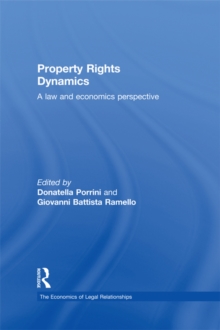
Extraterritoriality and International Bribery : A Collective Action Perspective EPUB
by Branislav Hock
Part of the The Economics of Legal Relationships series
EPUB
Description
The book presents a collective action perspective to explain how extraterritoriality functions and assess when, and to what extent, extraterritoriality is effective.
A collective action perspective provides a new account of foreign anti-bribery laws and their extraterritorial enforcement that draws on theories discussed in the field of economic governance.
Within this framework, the book offers an intensive analysis of US foreign anti-bribery law such as the Foreign Corrupt Practices Act (FCPA), international law as it emanates from the OECD Anti-Bribery Convention, and comparative insights into UK law and German law.
To test the theory in practice, the book provides a unique data set of more than 40 foreign anti-bribery enforcement actions conducted by the US Department of Justice (DOJ) and the Securities and Exchange Commission (SEC), and other examples from comparative jurisdictions. Extraterritoriality and International Bribery is ideal reading for academics and students with an interest in global governance, economic crime, criminology, and law and economics, as well as practitioners concerned with foreign anti-bribery enforcement, including compliance officers, lawyers, investigating and prosecuting authorities, and business leaders.
The book also discusses governance alternatives existing outside international anti-bribery law and offers policy and legal reforms proposals.
The book suggests a decentralized enforcement model with the delegation of some enforcement tasks to an external body as the most appropriate governance alternative.
Information
-
Download - Immediately Available
- Format:EPUB
- Pages:288 pages, 6 Tables, black and white; 6 Line drawings, black and white
- Publisher:Taylor & Francis Ltd
- Publication Date:11/09/2019
- Category:
- ISBN:9780429662768
Other Formats
- Paperback / softback from £39.99
- Hardback from £130.00
- PDF from £35.99
Information
-
Download - Immediately Available
- Format:EPUB
- Pages:288 pages, 6 Tables, black and white; 6 Line drawings, black and white
- Publisher:Taylor & Francis Ltd
- Publication Date:11/09/2019
- Category:
- ISBN:9780429662768










